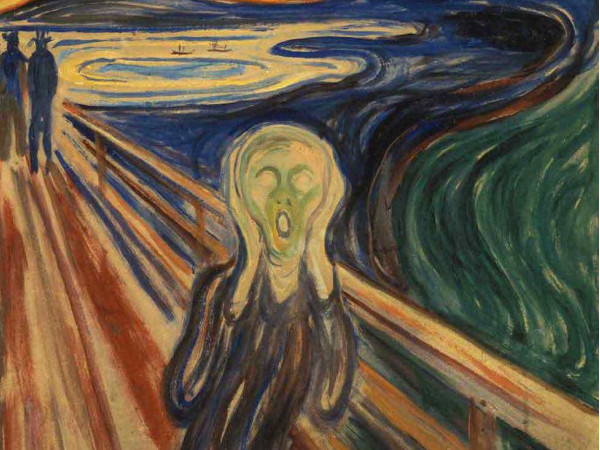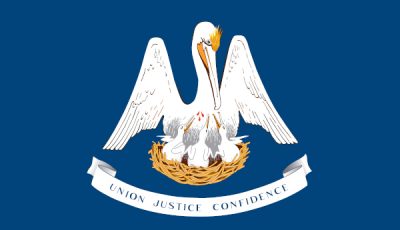Why Be a Pervert When You Can Be a Blameless ‘Addict’?
 SALT LAKE CITY – Are the devoutly religious more apt to become compulsive porn viewers, or are they simply more likely to term themselves “porn addicts” due to feelings of guilt and shame they experience every time they spy an exposed naughty bit?
SALT LAKE CITY – Are the devoutly religious more apt to become compulsive porn viewers, or are they simply more likely to term themselves “porn addicts” due to feelings of guilt and shame they experience every time they spy an exposed naughty bit?
In a study drawing on a sample population of 686 unmarried adults, researchers from Brigham Young University concluded “pornography use and religiosity were weakly associated with higher relationship anxiety surrounding pornography use, whereas perception of pornography addiction was highly associated with relationship anxiety surrounding pornography use.”
“This adds support to the idea that religious individuals either have a higher propensity for developing a pornography compulsion,” the researchers wrote in their paper, “or simply misattribute their pornography use to be an addiction, due to the guilt and shame accompanying sexual expression.”
Brian Willoughby, one of the BYU researchers behind the study, said the research didn’t cover the question of whether porn addiction is a real thing, or whether watching porn has a detrimental effect on relationships. Instead, his team looked at the anxiety people experience when talking about porn, or disclosing their porn use to their partners.
“In our society in general, and particularly in religious cultures, there needs to be more openness around this topic to help people reduce some of their anxiety,” Willoughby said. “Right now, a lot of our conversations around pornography are very black and white; you either are a pornography addict or you’re not.”
Aside from concluding religious folk are more likely to consider themselves porn addicts than are other people, there’s another way of looking at this data: If I watch too much porn just because I want to, it makes me a potentially irredeemable pervert, whereas if I’m compelled to watch too much porn due to an “addiction,” this magically transforms me into a blameless victim of a terrible, externally imposed affliction.
Think back to when Jimmy Swaggart got caught paying for sex. What was that, if not a sin he was tempted into by the Devil himself? Obviously, his repeated dalliances with prostitutes had nothing to do with Swaggart simply being a horny heterosexual with a taste for sex with strangers. We all know that’s a condition that only afflicts secular heathens and/or Democrats.
If porn addiction is a real thing (and it’s safe to say there’s strong doubt in the medical community on this point, considering the latest edition of the Diagnostic and Statistical Manual of Mental Disorders doesn’t include it as a recognized condition), there has to be some sort of differentiation made between addictive use of porn and what I’ll call “casual use,” to mirror a term commonly tossed about with respect to drug addiction.
I believe one of the big mistakes of the “Drug War” has been trying to persuade the public through the repeated use of rhetoric that is entirely unmoored from reality. You know the sort of thing I’m talking about: public service announcements that suggest getting stoned is going to make you accidentally shoot someone in the head, lecturers who tour high schools telling teenagers absurd lies about the certain death they face if they ever do the drugs they’re already high on while sitting there listening, inane slogans like “Just Say No”… The list goes on and on.
All this over-the-top propaganda does is close the mind of its intended audience, because (news flash!) most kids simply aren’t as stupid and gullible as the drug czar types apparently believe them to be.
The connection between anti-drug rhetoric and the anti-porn rhetoric we’re hearing these days from various activist groups boils down to the same sort of rhetorical excess: Porn isn’t just bad, it’s entirely ruinous, essentially evil, fundamentally inhumane.
To hear these folks tell it, porn “kills love,” causes men to view women purely as sexual objects (unlike, say, hamburger commercials), causes erectile dysfunction (except when one is watching the stuff, presumably) and encourages sexual violence all over the place, despite statistical trends that suggest sexual assaults have actually been on the decline over the same period when porn has “invaded our homes” by way of the internet.
What’s my point?
If the recent BYU study and others that have come to similar conclusions are on to something, labeling heavy porn consumption an “addiction” may be doing exactly the opposite of helping people.
Instead, the notion of porn addiction may be giving high-volume porn consumers the idea they’re suffering from a disease, as opposed to engaging in a behavior they can change — quite possibly without accepting a “higher power” or wandering around offering awkward apologies to various people in their lives, some of whom may prefer not to know about porn viewing habits, excessive or otherwise.
One Comment
Leave a Reply
You must be logged in to post a comment.













Pingback: Why Be a Pervert When You Can Be a Blameless ‘Addict’? – TripleXers Blog